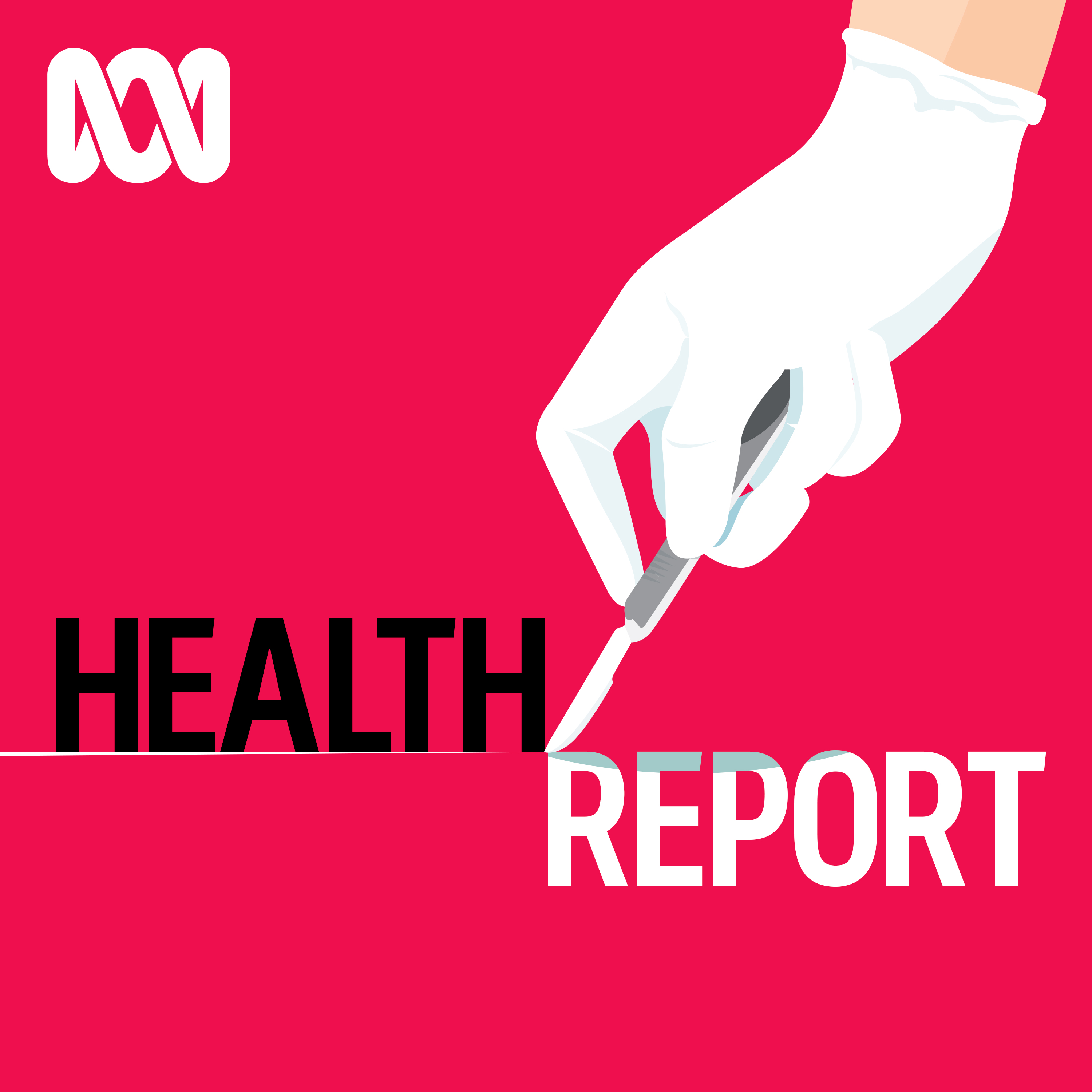

Health Report - Separate stories podcast
ABC
Covering the health stories that make a difference. Dr Norman Swan and Dr Preeya Alexander dissect the latest and breaking news in the medical world.
Episodes
Mentioned books

Dec 19, 2025 • 38min
Swapping salt for a heart healthier option
Rachel Casella, a fierce advocate for genetic carrier screening after losing her daughter, shares the importance of proactive testing for expectant parents. Dr. Teva Brenda discusses the potential of AI in making life-and-death decisions, emphasizing the ethical implications involved. Meanwhile, biomedical ethicist Brian Earp explores how AI could predict patient preferences, stressing the need for accuracy and transparency. Together, they illuminate the intersections of health, technology, and personal choice in shaping better future outcomes.

Dec 12, 2025 • 10min
VicHealth closure a blow for preventative health
The discussion highlights the looming threat to VicHealth's independence as the Victorian Government plans to absorb it, jeopardizing its crucial role in public health. They explore the foundational history of VicHealth and its unique funding model. The conversation shifts to the U.S. advisory committee's controversial recommendation to halt hepatitis B vaccinations for newborns, which raises significant public health concerns. Experts urge that such changes could have severe implications for chronic infection rates and liver cancer.

Dec 12, 2025 • 11min
What to do if you have fatty liver disease
Up to 30 per cent of Australian adults could be living with metabolic associated fatty liver disease (MAFLD).Most of those people won’t be aware they have the condition, and for those that are aware, the diagnosis can come as a shock.So what can be done to treat fatty liver disease? And can it be reversed entirely?Guest/sProfessor James O’Beirne, consultant hepatologist at Sunshine Coast University Hospital in Queensland ReferencesEating For Your Liver - Liver Foundation

Dec 12, 2025 • 10min
Why fewer people are getting the HPV vaccine
While Australia is still determined to eliminate cervical cancer by 2035, there are early warning signs emerging.Rates of vaccination against HPV, the commonest cause of nearly all cervical cancers, have fallen. And they’re still lagging in boys.Experts suggest school vaccination programs are struggling because of rising absenteeism.They want more young people to know that they can receive a free HPV vaccine up to age 25.Guest/sProfessor Julia Brotherton, cancer prevention policy and implementation at the University of Melbourne References2025 Cervical Cancer Elimination Progress Report

Dec 12, 2025 • 7min
Indigenous infants have healthier gut microbiomes
A study has found Indigenous babies in remote Australia are born with more diverse gut bacteria. While this is a key marker of health, it's still unclear why these babies will grow up to have an increased risk of chronic disease. It highlights how Westernisation could be having a detrimental impact on the health on First Nations people. Guest/sProfessor Leonard Harrison, the Walter and Eliza Hall Institute of Medical Research and the University of MelbourneReferencesIndigenous infants in remote Australia retain an ancestral gut microbiome despite encroaching Westernization

Dec 12, 2025 • 6min
Mailbag: B6 toxicity and women's pain
Listeners dive into a discussion on B6 toxicity and its risks, where personal stories reveal serious consequences of supplements. A poignant case highlights gender bias in healthcare, showcasing how women's symptoms can be overlooked. The challenges of IUD insertion are addressed, including the use of Penthrox for pain management in clinical settings. The hosts invite feedback on practical applications in confined spaces, ensuring a response to real-world concerns.

Dec 5, 2025 • 11min
Shingles vaccine could slow dementia decline
A new study shows the shingles vaccine might help slow dementia decline, revealing surprising benefits for cognitive health. Discussions also dive into the comparison between older and newer shingles vaccines, highlighting Shingrix’s potential advantages. The WHO outlines guidelines for using GLP-1 medications in obesity treatment, while emphasizing the need for systemic changes in food policy. Finally, updated advice emerges on contraception and mental health concerning these medications. Tune in for insightful conversations on health and well-being!

Dec 5, 2025 • 10min
More pain relief options for IUD insertions
For many women, getting an intra-uterine device (IUD) inserted is a painful and scary experience.The level of pain relief offered can depend on the clinic and can be restricted by out-of-pocket costs the patient can’t afford.A trial is underway in Victoria offering a free pain-relieving "green whistle" to public patients, after a state enquiry into women’s pain.Guest/sDr Felicity Dent, GP and a board member for Pelvic Pain VictoriaReferencesInquiry into Women's Pain - Victorian GovernmentGovt backs green whistle during IUD insertion in response to women’s pain inquiry

Dec 5, 2025 • 8min
How much is nature vs nurture?
In a fascinating discussion, Loic Yengo, a statistical genomics researcher at the University of Queensland, dives into the age-old debate of nature versus nurture. He reveals insights from a major study on 34 traits, showing that genetics may explain around 30% of our characteristics, while environment plays a surprisingly significant role. Yengo highlights how new genomic approaches contrast with traditional twin studies and emphasizes the importance of understanding these dynamics for disease prediction and social equity.

Dec 5, 2025 • 7min
How our gut microbiome helps (or hinders) vaccines
Both antibiotics and vaccines can be life-saving medicines, but it turns out they don’t necessary play nice together.New research suggests direct antibiotics in early life can make a baby’s response to vaccination weaker.


